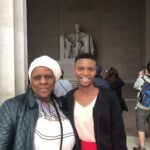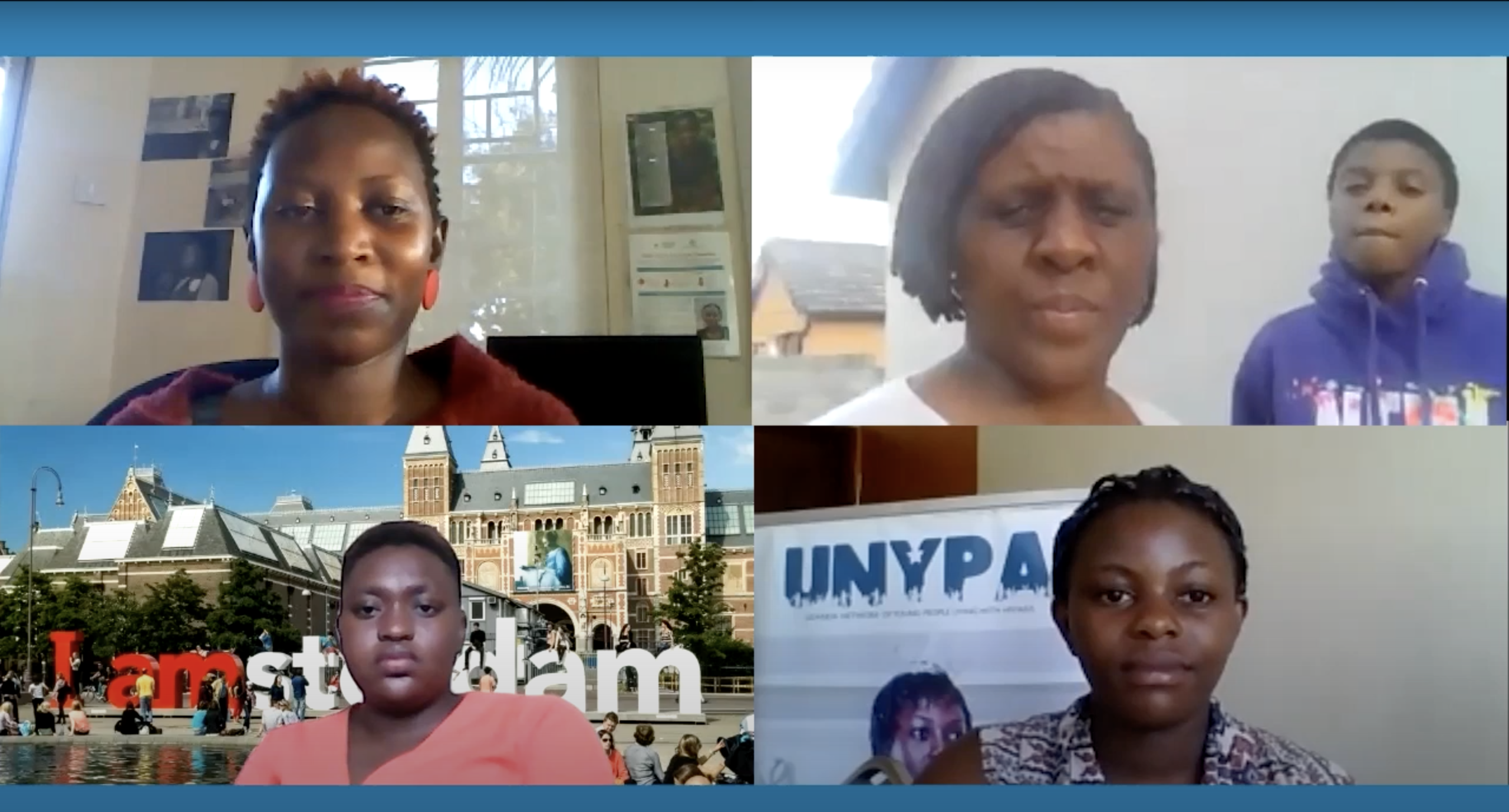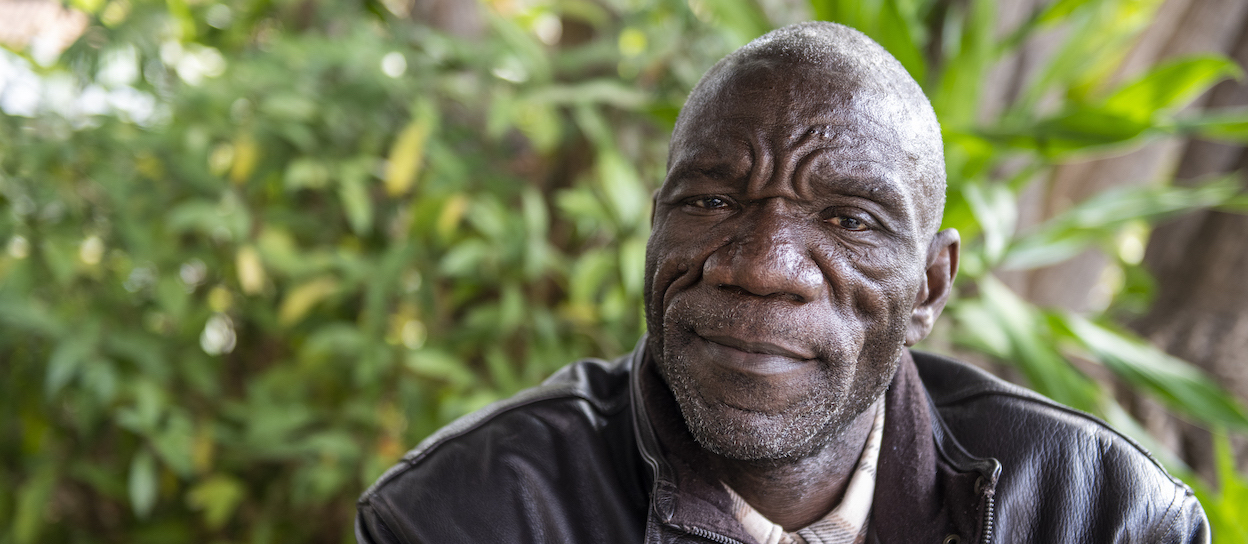We were proud to join global health partners UNAIDS, UNICEF, WHO, PEPFAR, and ICAP recently to host an event on the side of the 2021 UN High Level Meeting on HIV and AIDS. Children living with HIV today face a stark reality, and this event highlighted the need to recommit to ending AIDS for children, youth, and families.
Among those pushing to put children and young people in focus were a group of young women who shared their powerful, personal stories of their own fight for an AIDS-free generation.
 Miriam Hasasha is an educator under the Uganda Network of Young People Living with HIV, and a Young Mother Ambassador under the Coalition of Children Affected by AIDS. When she became pregnant at the age of 15, she persevered to use her experiences to advocate for change for young parents on a global level.
Miriam Hasasha is an educator under the Uganda Network of Young People Living with HIV, and a Young Mother Ambassador under the Coalition of Children Affected by AIDS. When she became pregnant at the age of 15, she persevered to use her experiences to advocate for change for young parents on a global level.

Doreen Moraa Maracha is a Kenyan activist and founder of the I Am a Beautiful Story campaign. “I’ve lived with HIV for the last 28 years,” Doreen explains, “and I come from a discordant family. My dad is negative, my mom is positive, and I’m the only one of my siblings living with HIV.”

Also joining were Babs and Anathi Mbono, a mother and daughter from South Africa. When she was pregnant with Anathi 19 years ago and learned of her HIV status, Babs received support from mentor mothers. Now she, too, serves as a mentor mother with Mothers2Mothers.

Moderating the panel was EGPAF Ambassador and Board Member Josephine Nabukenya of Uganda, who was born with HIV 27 years ago. When she learned about her HIV status as a young girl, she was enrolled into an EGPAF Ariel psychosocial support group, named after Elizabeth Glaser’s daughter. “Since then,” Josephine shares, “I’ve dedicated my life to helping other young people like me.”
Overcoming challenges
In a rich and poignant conversation, the panelists shared challenges they are each fighting in their activism. “Being a teenager in South Africa is quite difficult,” said 18-year-old Anathi. “We experience things that are out of our control.” Unplanned pregnancies and STIs, she continued, can present barriers for a young person to do the things she wants to do in life, yet there is a pervasive lack of guidance in an environment where it is taboo to speak of such things. “We feel that we are going to get criticized for growing up,” Anathi explained. “We’re going to get criticized for even talking about sex.”
Aside from the COVID pandemic, we also have the HIV pandemic and unplanned pregnancies. Anathi Mbono
But these conversations are crucial to have, especially as COVID has pushed other concerns to the back of some people’s minds. “Aside from the COVID pandemic, we also have the HIV pandemic and unplanned pregnancies,” Anathi reminds us.
For her part, Miriam discussed the great challenges of living with HIV and parenting in the age of COVID-19. “Getting medicine is hard because we need to travel to hospitals and we don’t have even transport to go there.” Supports that young families previously relied on have been harder to access, as people have been separated from one another during the pandemic.
Looking at the human before the virus
One recurring challenge among the panelists was confronting stigma of HIV in their own lives, and on a societal level. “In Uganda, very many young families are treated as sinners in the community,” shared Miriam. “When I got pregnant, I was forced to leave home because of the neglect from family members and friends. My grandmother came to my rescue.”
The more you talk about HIV, the more you demystify the myths and misconceptions. Josephine Nabukenya
In her own way, Doreen also noticed stigma of HIV in her family: “I was given my own plate and cup and spoon, which were disinfected after I finished eating.” School was difficult at times, as she had difficulty explaining why she took medication every day. “You know how high school kids treat each other. People did not look at people living with HIV as normal people. So until we look at the human before the virus, that is why I talk about stigma a lot,” Doreen explains.
Josephine agreed: “We need to make people comfortable to talk about HIV freely, because the more you talk about it, the more you demystify the myths and misconceptions.”
“We create room for ourselves.”
One way to gather the power to talk freely and break down misunderstanding and stigma, the panelists agreed, is mutual support.
There is nothing that is more beautiful than getting support from a person that has gone through the experiences that you’re going through. Josephine Nabukenya
“We encourage ourselves, we come together, we create room for ourselves,” shared Babs. She herself was supported by mentor mothers through her HIV diagnosis and pregnancy. “I was scared because those days when you were diagnosed with HIV, there was no treatment. But with support from the mentor mothers, she shared, “I was able to adhere to my treatment and have a beautiful HIV-free child.” The story was all the more moving as Babs and the now-grown Anathi stood side-by-side during the panel.
“Indeed,” Josephine concurred, “there is nothing that is more beautiful than getting support from a person that has gone through the experiences that you’re going through.”
What we need from donors and policymakers: The elephant in the room
The panelists were still clear, however, that it falls to each of us to focus on children and young people living with HIV. They laid out what we need from global leadership to end this epidemic.
They need to involve us in their talks, and they should empower us more than discriminate against us. Miriam Hasasha
“What I can tell donors,” said Miriam, “is that they should they should treat us like other people. They need to involve us in their talks, and they should empower us more than discriminate against us.”
Doreen agreed that the discrimination must end if we are to end AIDS. “The donors and all the policymakers have come up with this ambitious plan of the 95-95-95 goals,” she explained. “But the elephant in the room is the stigma.
“If we have not killed stigma, people won’t take their medication. If we have not addressed stigma, people will not be virally suppressed. And if we have not addressed stigma, people will not get tested and know their HIV status because they still fear HIV.”




